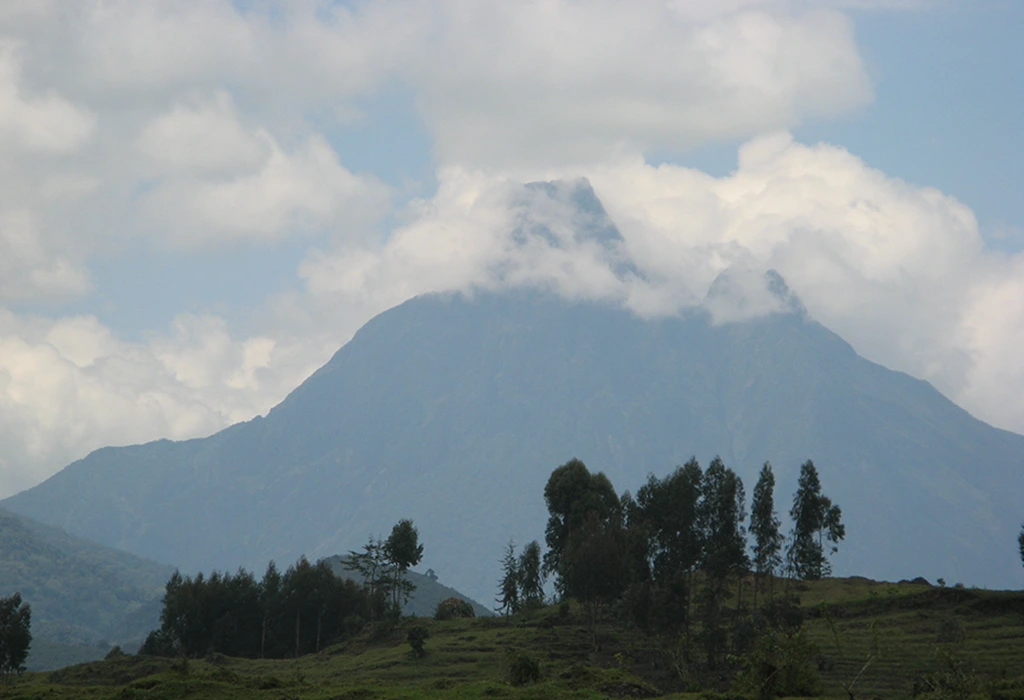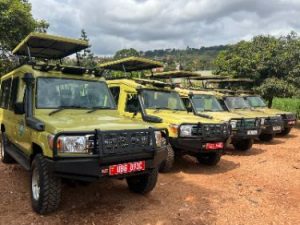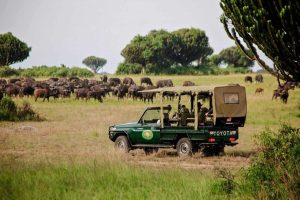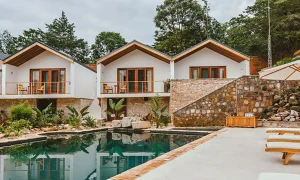Mount Bisoke (also known as Visoke) is one of the most breathtaking hiking destinations in East Africa. Located in Rwanda’s Volcanoes National Park, it is a dormant volcano rising 3,711 meters above sea level. Famous for its spectacular crater lake at the summit, lush tropical vegetation, and mountain gorilla habitat, Mount Bisoke is an unforgettable trekking experience. But how much does it really cost to hike Mount Bisoke?
This guide will cover all expenses associated with a Mount Bisoke hike, including permits, transportation, gear, accommodation, and more. It also answers frequently searched questions to help you plan a well-informed and budget-conscious adventure.
How Much Does It Cost to Hike Mount Bisoke in 2025?
The core cost of hiking Mount Bisoke is the trekking permit, which grants access to the park and the guided hike. As of 2025, the cost breakdown for the hiking permit is structured based on nationality and residency status:
Foreign Non-Residents: $75 USD per person
Foreign Residents in Rwanda: $60 USD per person
East African Foreign Residents: $65 USD per person
East African Citizens: $55 USD per person
Rwandan Citizens: RWF 4,000
These fees include a ranger guide provided by the Rwanda Development Board (RDB), who leads the trek and ensures the safety of all participants. However, the permit cost does not include transportation to the park, gear, meals, or accommodation.
What Additional Costs Should You Expect Beyond the Permit?
While the permit may seem affordable, the full cost of the hike includes several other components. Here’s a detailed breakdown:
Transportation to Volcanoes National Park
The park is located in the Musanze District, approximately 105 kilometers from Rwanda’s capital, Kigali. If you’re not part of a tour package, you will need to arrange your own transport.
Private Car Hire: Hiring a 4×4 vehicle (highly recommended due to rough terrain) will cost around $70–$100 USD per day.
Fuel: A round trip from Kigali can consume fuel worth approximately $80–$100 USD, depending on fuel prices and vehicle consumption.
Driver’s Allowance (if applicable): $20–$30 USD per day.
Accommodation
Depending on your travel style, accommodations around Musanze and Kinigi range widely in price.
Budget Lodges and Guesthouses: $30–$70 USD per night
Mid-range Hotels and Lodges: $80–$200 USD per night
Luxury Lodges: $400–$1,000+ USD per night
If you’re only in town for the hike, budget options are sufficient, but many travelers choose to combine the hike with gorilla trekking and may prefer higher-end accommodations.
Meals and Daily Expenses
Most lodges offer bed and breakfast, but additional meals will need to be accounted for.
Breakfast and light snacks: Included or around $5–$10 USD
Lunch and Dinner at lodges or restaurants: $10–$25 USD per meal
Packed Lunch for the Hike: $5–$10 USD
Porter Fees
Hiring a porter is optional but highly recommended, especially if you are carrying a backpack or heavy gear. Porters charge around $10 USD, and tipping is appreciated for excellent service.
Trekking Gear Rentals
You can rent gear near the park headquarters in Kinigi if you don’t bring your own.
Raincoat: $5–$10 USD
Gumboots: $5–$10 USD
Gloves and Gaiters: $5–$10 USD
Walking Stick: Often provided free or at a nominal fee
While not mandatory, these items are essential during the rainy season, as the trail can become muddy and slippery.
Tips and Gratuities
While tipping isn’t mandatory, it’s customary to tip your guide and porter if they offer excellent service.
Guide Tip: $10–$20 USD per group
Porter Tip: $5–$10 USD per porter
What Is the Best Time to Hike Mount Bisoke?
Rwanda experiences a relatively temperate climate throughout the year. However, certain times are better than others for hiking Mount Bisoke.
Dry Seasons (Best Time to Hike)
June to September: Ideal for hiking due to dry trails and clearer skies.
December to February: A shorter dry season, still suitable for hiking.
Rainy Seasons (More Challenging Hikes)
March to May: Heavy rains can make trails muddy and visibility poor.
October to November: Intermittent rains may make hiking challenging.
During dry seasons, the trail to Mount Bisoke’s summit is less slippery, making it easier and safer to hike, especially for beginners.
How Long Does the Mount Bisoke Hike Take?
The Mount Bisoke hike typically takes between 6 to 8 hours round trip. The average breakdown is:
Ascent: 4 to 6 hours depending on fitness level and weather conditions
Descent: 2 to 3 hours
Hiking Mount Bisoke is considered moderate in difficulty. The trail is steep, and the altitude can affect breathing, especially near the summit. However, with a steady pace and adequate hydration, most people complete the hike successfully.
What Should You Pack for the Mount Bisoke Hike?
Packing smart is essential. Here’s a list of recommended items:
Hiking boots: Waterproof and with good ankle support
Warm clothing: The temperature drops significantly at higher altitudes
Rain jacket or poncho: Essential during rainy months
Snacks and water: At least 2 liters of drinking water and high-energy snacks
Gloves and gaiters: For protection and warmth
Daypack: To carry your lunch, water, and personal items
Camera or smartphone: For capturing the spectacular views
Are There Age Limits or Restrictions?
Yes, the Rwanda Development Board enforces certain rules for safety and conservation:
Minimum Age: 15 years
Maximum Group Size: 16 hikers
Permit Required: You must obtain the permit before the hike and present ID or passport
The hike is not recommended for individuals with severe respiratory conditions due to the high altitude.
Can the Mount Bisoke Hike Be Combined With Other Activities?
Many travelers combine the Mount Bisoke hike with other excursions in Volcanoes National Park and surrounding areas:
Gorilla Trekking: Rwanda’s most iconic experience, though permits cost $1,500 USD
Golden Monkey Tracking: An easier and cheaper alternative to gorilla trekking
Dian Fossey Grave Hike: A memorial trail leading to the final resting place of the famous primatologist
Cultural Village Visits: Get immersed in traditional Rwandan culture through guided community tours
Combining these activities can maximize your trip and offer diverse experiences in a single visit.
Is Hiking Mount Bisoke Worth the Cost?
Absolutely. While the Mount Bisoke hike is relatively affordable compared to other activities in Volcanoes National Park, it offers one of the most rewarding and scenic experiences in Rwanda. From the lush rainforest to the crater lake summit, every step is filled with natural beauty and adventure.
Understanding the full cost—from permits to porters—helps ensure you’re prepared for the trek and avoid unexpected surprises. Whether you’re a seasoned hiker or a nature lover looking for your next big challenge, Mount Bisoke should be high on your list.
Estimated Total Cost for a Solo Traveler (Budget Range):
Permit: $75
Transport: $80–$100
Meals: $30
Accommodation: $60
Gear Rental: $20
Porter + Tips: $20
Total Estimate: $285–$305 USD
With careful planning, hiking Mount Bisoke can be an affordable and unforgettable part of your Rwandan journey.




